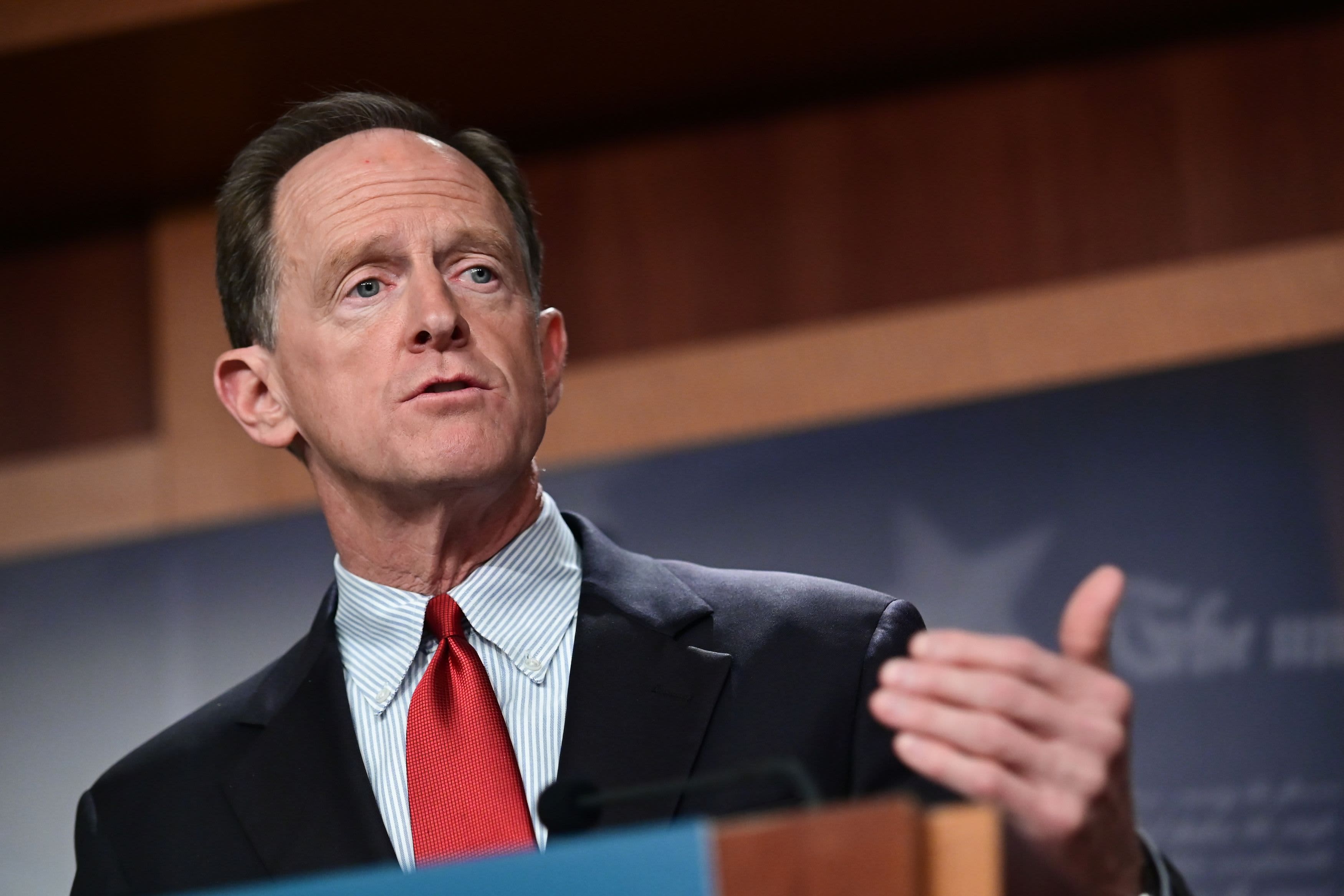
Sen. Pat Toomey will on Thursday introduce legislation to protect a controversial practice known as payment for order flow, the main source of revenue for online brokerages like Robinhood Markets.
Securities and Exchange Commission Chairman Gary Gensler, Wall Street's top regulator and a critic of the practice, has made reforming payment for order flow a top priority after the trading frenzy in stocks such as GameStop earlier this year.
Specifically, Toomey's bill would prevent the SEC from instituting an outright ban on payment for order flow, an idea Gensler has said he's considering as part of his broader efforts to reform the practice.
The Pennsylvania Republican defended the payment for helping develop new investment apps, low-cost trading and more efficient execution.
"New innovations—such as zero commission trading and user-friendly mobile apps—have allowed more Americans to participate in the stock market than ever before," Toomey, the ranking member on the Senate Banking Committee, said in a press release. "Such technologies have been made possible in part by payment for order flow."
Payment for order flow, or PFOF, is collected by brokerages like Robinhood when they sell their customers' orders to high-speed trading firms known as market makers. Those market makers then execute the trades and profit by taking a small difference between the buying and selling prices of stocks.
Advocates like Toomey say that payment allows Robinhood and other online brokerages to offer trades with no upfront commission fees. Those zero-commission stock trades helped Robinhood persuade millions of younger customers to invest for the first time, and are credited for broader market participation across the U.S.
Many of its competitors also generate revenues from payment for order flow, though the practice has outsized implications for Robinhood. In a government filing published in July, Robinhood said 81% of its first-quarter revenues came from payment for order flow.
Neither the SEC nor Robinhood responded to CNBC's request for comment.
The SEC has reviewed the practice several times before and has thus far agreed with brokers and traders that it benefits small investors, a principal concern for SEC chief Gensler.
He and other critics argue that selling trading volumes poses a conflict of interest for brokerages since the brokers can either earn more by selling their clients' order volume or pass that cash on to customers in the form of cheaper trades.
Those wary of also note that there are only a couple large, high-speed trading firms to execute trades for clients of retail brokerage firms like Robinhood. One such high-speed trading firm is Citadel Securities. That one company handles 27% of U.S. equities trading volume and 37% of all U.S.-listed retail volume.
Robinhood's chief legal officer said last month that he believes the SEC will "arrive at the conclusion that payment for order flow is undoubtedly an amazingly good thing for retail investors and they're not going to ban it."
Gensler acknowledges that high-speed trading and easy-to-use apps have made investing both cheaper and more popular. But the dominance of a few big market makers, he warns, could limit competition and result in more expensive trades for the average investor.
"Retail investors can trade over commission-free brokerage apps. Telecommunication has transformed the speed of high-frequency trading," Gensler said in prepared testimony in September. "That wasn't the case even a few years ago."
Still, "nearly half of the volume transacted is executed in 'dark pools' or by wholesalers," he added. "I believe it's appropriate to look at ways to freshen up the SEC's rules to ensure that our equity markets reflect our mission and are as efficient and competitive as they could be."
Outside the SEC's analysis, the odds Toomey's bill becomes law anytime soon appear slim in a Congress controlled by Democrats. Gensler, nominated to lead the SEC by President Joe Biden, has been encouraged by progressive lawmakers to step up regulatory oversight.
Further, with Democrats intent on enacting trillions in spending, facing a looming debt ceiling and poised to review a slate of new Federal Reserve nominees, it's unclear whether the Senate could consider the legislation before year's end.
"payment" - Google News
October 28, 2021 at 05:00PM
https://ift.tt/3bk5Mri
GOP Senator Toomey debuts bill to protect broker revenues, payment for order flow - CNBC
"payment" - Google News
https://ift.tt/3bV4HFe
https://ift.tt/2VYfp89
Bagikan Berita Ini














0 Response to "GOP Senator Toomey debuts bill to protect broker revenues, payment for order flow - CNBC"
Post a Comment